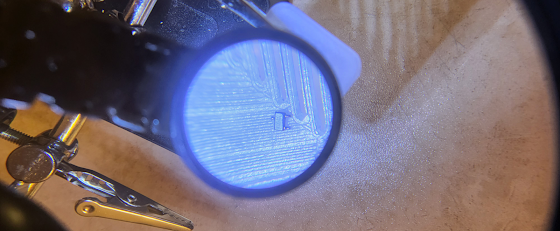This version keeps track of the default printer :)
' s@to**.guru - Jan 08 2015 Replace the default Printer
'********************************************************************************************************************
On Error Resume Next
Set objFSO = CreateObject("Scripting.FileSystemObject")
Set objShell = CreateObject("WScript.Shell")
Set objNetwork = CreateObject("WScript.Network")
'Set wmiLocator = CreateObject("WbemScripting.SWbemLocator")
'Set wmiNameSpace = wmiLocator.ConnectServer(objNetwork.ComputerName, "root\default")
'Set objRegistry = wmiNameSpace.Get("StdRegProv")
'strComputer = "."
'Const HKEY_CLASSES_ROOT = &H80000000
'Const HKEY_CURRENT_USER = &H80000001
'Const HKEY_LOCAL_MACHINE = &H80000002
'Const HKEY_USERS = &H80000003
userprrf = objShell.Environment("PROCESS")("UserProfile")
lockfile = "\prinstalled"
oldlockfile = "\printersinstalled"
strnewSrv = "\\2K12SRV\"
strOldSrv = "\\critesdc\"
arrPrinters = Array("HP Color LaserJet 4700 PCL 5c","HP Color LaserJet 4700 PCL 5c Sales","HP LaserJet 4100 Series PCL6 Sales","HP LaserJet 4250 PCL6","HP Laserjet 5100tn","Xerox WorkCentre 5655 PS","Xerox7545 PS")
'********************************************************************************************************************
' If this script was already run at least once for this user, EXIT and don't look back
If (objFSO.FileExists(userprrf & lockfile)) Then
Wscript.Quit
End If
' Delete old lockfile
objFSO.DeleteFile(userprrf & oldlockfile)
'' If we're on the TS server create lockfile and Exit!
'If objNetwork.ComputerName = "2K12TS1" Then
' Set objFile = objFSO.CreateTextFile(userprrf & lockfile, true)
' Set objFile = objFSO.GetFile(userprrf & lockfile)
' objFile.Attributes = 2
' Wscript.Quit
'End if
'********************************************************************************************************************
' Make spooler autostart without waiting
' use Microsoft's way of getting StdRegProv, set_binary is special!
'Set oRegistry = _
' GetObject("Winmgmts:root\default:StdRegProv")
'strPath = "SYSTEM\CurrentControlSet\Services\Spooler"
'uBinary = Array(80,51,01,00,00,00,00,00,00,00,00,00,03,00,00,00,20,00,64,00,01,00,00,00,00,00,00,00,01,00,00,00,00,00,00,00,01,00,00,00,00,00,00,00)
'Return = oRegistry.SetBinaryValue(HKEY_LOCAL_MACHINE, _
' strPath, _
' "FailureActions", _
' uBinary)
'oShell.RegWrite "HKLM\SYSTEM\CurrentControlSet\Services\Spooler\Start", 2, "REG_DWORD"
'********************************************************************************************************************
' get the default printer
strdefValue = "HKCU\Software\Microsoft\Windows NT\CurrentVersion\Windows\Device"
strdefPrinter = objShell.RegRead(strdefValue)
strdefPrinter = Split(strdefPrinter, ",")(0)
'wscript.Echo "Actual default printer: " & strdefPrinter
' put the default printer into the lockfile if we want to keep it for historical records
'Set objFile = objFSO.CreateTextFile(userprrf & lockfile)
'objFile.Write strdefPrinter & vbCrLf
'objFile.Close
'********************************************************************************************************************
'Delete old printers using either printui.dll or AddWindowsPrinterConnection
wscript.sleep 100
For Each strPrn in arrPrinters
strPrinter = (strOldSrv & strPrn)
'wscript.echo "removing " & strPrinter
strCmd = "rundll32 printui.dll,PrintUIEntry /dn /n """ & strPrinter & """ /q"
objShell.Run strCmd,,true
' objNetwork.RemoveWindowsPrinterConnection strOldSrv & strPrn
Next
'********************************************************************************************************************
' to make sure all printers are removed, Deletes RegistryKey with all subkeys in Network printers
'sPath = "Printers\Connections"
'lRC = DeleteRegEntry(HKEY_CURRENT_USER, sPath)
'Function DeleteRegEntry(sHive, sEnumPath)
' Attempt to delete key. If it fails, start the subkey enumration process.
'lRC = objRegistry.DeleteKey(sHive, sEnumPath)
' The deletion failed, start deleting subkeys.
'If (lRC <> 0) Then
' Subkey Enumerator
'On Error Resume Next
'lRC = objRegistry.EnumKey(HKEY_CURRENT_USER, sEnumPath, sNames)
'For Each sKeyName In sNames
'If Err.Number <> 0 Then Exit For
'lRC = DeleteRegEntry(sHive, sEnumPath & "\" & sKeyName)
'Next
'On Error Goto 0
' At this point we should have looped through all subkeys, trying to delete the key again.
'lRC = objRegistry.DeleteKey(sHive, sEnumPath)
'End If
'End Function
' Now let's recreate only the "root" Key we deleted before
'objRegistry.CreateKey HKEY_CURRENT_USER,sPath
'********************************************************************************************************************
' we have zero network printers, let`s remove all unused drivers by using Microsoft`s own prndrvr.vbs
' first restart print spooler in order to release open files
'Set objWMIService = GetObject("winmgmts:" _
' & "{impersonationLevel=impersonate}!\\" & strComputer & "\root\cimv2")
'Set colServiceList = objWMIService.ExecQuery _
' ("Select * from Win32_Service where Name='Spooler'")
'For each objService in colServiceList
' errReturn = objService.StopService()
'Next
'wscript.sleep 1000
'Set colServiceList = objWMIService.ExecQuery _
' ("Select * from Win32_Service where Name='Spooler'")
'For each objService in colServiceList
' errReturn = objService.StartService()
'Next
'oShell.Run "cscript %systemroot%\system32\prndrvr.vbs -x"
'********************************************************************************************************************
'Add new printers using either printui.dll or AddWindowsPrinterConnection
wscript.sleep 100
For Each strPrn in arrPrinters
strPrinter = (strNewSrv & strPrn)
'wscript.echo "installing " & strPrinter
strCmd = "rundll32 printui.dll,PrintUIEntry /in /n """ & strPrinter & """ /u /q /Gw"
objShell.Run strCmd,,true
' objNetwork.AddWindowsPrinterConnection strNewSrv & strPrn
Next
'********************************************************************************************************************
' Try to put back the default printer
'Set objFile = objFSO.OpenTextFile(userprrf & lockfile)
'Do Until objFile.AtEndOfStream
' strNewDefPrinter = objFile.ReadLine
'Loop
'objFile.Close
strNewDefault = (Replace(strdefPrinter,strOldSrv, strNewSrv))
'wscript.Echo "New default printer: " & strNewDefault
strCmd = "rundll32 printui.dll,PrintUIEntry /y /n """ & strrNewDefault & """ /u /q /Gw"
objShell.Run strCmd,,true
'objNetwork.SetDefaultPrinter strNewDefault
'********************************************************************************************************************
' Tell the user to check his default printer
beep = chr(007)
objShell.Run "cmd /c @echo " & beep & beep, 0
'with createobject("wscript.shell")
' .popup "Tous vos imprimantes réseau ont été installés. SVP vérifier et changer votre imprimante DÉFAULT si nécessaire.",30, "Printers Manager"
'end with
'objShell.Exec("control printers")
'********************************************************************************************************************
' We're done, let's leave a hidden file in userprofile, so at next login this script will exit
Set objFile = objFSO.CreateTextFile(userprrf & lockfile, true)
Set objFile = objFSO.GetFile(userprrf & lockfile)
objFile.Attributes = 2
Wscript.Quit







